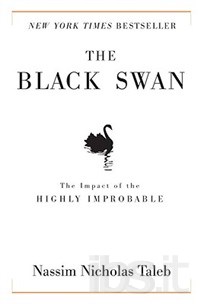I’m glad to post here that my friend Tarek Refaat has finally published his new book. Last Thursday was the unvailing and it was welcomed with great enthousiasm.
I hope you will like the design of the cover title, it is one of my trials in discovering usages of the Kufi script.
Stay tuned for the work progress!

 Title: Broken Shadows
Title: Broken Shadows
Author: Tarek Refaat
Release Date: April 8, 2016
Publisher: Red Sands Publishing
Genre: Thriller, Crime, Suspense, International
Book Description:
Broken hearts and dark shadows, will love ever find its way back to them?
Fifteen years ago, Heidi Aasar fled the country, hoping to make sense of the chaos that
surrounded her. A burned ex-operative, she refuses to continue hiding in the shadows.
She now has the chance to right the wrongs of her dark past. Determined to find a way to
redeem herself, she must first fix the loose threads she left behind so long ago.
A successful business owner, Nadim Mohamed Sharaf has done his best to move on after
his heart was broken fifteen years ago. In his mind, he has everything he could ever want
or need at his fingertips. Until the moment Heidi makes a sudden reappearance in his life.
It’s then everything around him changes.
A chain reaction of events soon turns Nadim and Heidi’s lives upside-down. Forced to
confront the turmoil brewing between them, they must put aside their differences if they
are to survive another day. The choices they’ll have to make will define the outcome of
the lives they lead.
Will they be able to overcome their painful and chaotic past? Or will the pain and
heartache consume them in the long run?
(Purchase links are not yet available.)
Goodreads: https://www.goodreads.com/book/show/28927401-broken-shadows

EXCERPT:
AFTER A LONG DAY AT WORK, Nadim stood in his office,
observing Cairo from the seventeen stories high window. The streets below were
crowded. He could see the people rushing to get back to their homes, eager for a little
respite from a hard day’s work.
Cabs pulled up to the curb along the two-way street to pick up clients and those eager to
get away from the ensuing chaos. People scurried about like rats trapped inside a maze.
Some greeted others in a timely fashion, while others grew surly and shouted obscenities.
Nadim smirked and shook his head. He was used to this scene spreading out before him.
It wouldn’t be long until he joined the ‘rats’ trapped in their own chaotic mazes. The
thought of making his way home appealed to him.
His mind wandered, trapping him in another maze. A maze that took him back fifteen
years. One that brought back memories he’d spent a lifetime trying to avoid. Memories
he wished he could forget, once and for all.
Nadim thought he’d forgotten all about her, the one woman who’d broken his heart.
She’d meant everything to him. He would have given her the world if she’d asked him to.
During his high school days, he’d been known as a playboy. A sweet-talker who’d gotten
exactly what he’d wanted. Charming and attentive, every girl in school came to him for
advice about guys. Most of them ended up hooking up with him.
He’d experienced the same throughout college and work until he’d met her. Beautiful and
brazen, she’d wrapped him around her finger. She’d drawn him in like a moth to flame,
inciting his baser desires. In the end, she’d played him like a smooth violin, cutting its
strings with a scalpel so that it made no noise, whatsoever.
Nadim growled with annoyance. He never thought he’d ever see her again. After fifteen
years, the bane of his existence had popped up in his life once more. Heidi had recently
dropped by his office for an interview.
 ABOUT THE AUTHOR:
ABOUT THE AUTHOR:
Tarek Refaat is an Egyptian author born in October 1980. He comes from a family that
has diverse cultural roots, and has spent most of his adulthood between Saudi and Egypt,
until finally settling in Egypt.
Tarek is an avid reader of history, and has been into writing since a very young age. He
loves to describe the thoughts and feelings he’s experienced through words. He has
written poetry and prose, and decided as of 2009 to move forward into stories and novels.
Tarek has previously been published, and has also self-published. He views writing as his
aim to reach as many people through his thoughts, and provoke positive and hopeful
energy through his stories.
SOCIAL MEDIA LINKS:
Website/Blog: http://forgottenrealms.me
Twitter: https://twitter.com/energizre
Facebook: https://www.facebook.com/Tarek-Refaat-142437057778
Goodreads: https://www.goodreads.com/author/show/4919674.Tarek_Refaat
Email: Tarek.h.refaat@live.com



 Title: Broken Shadows
Title: Broken Shadows
 ABOUT THE AUTHOR:
ABOUT THE AUTHOR:









































